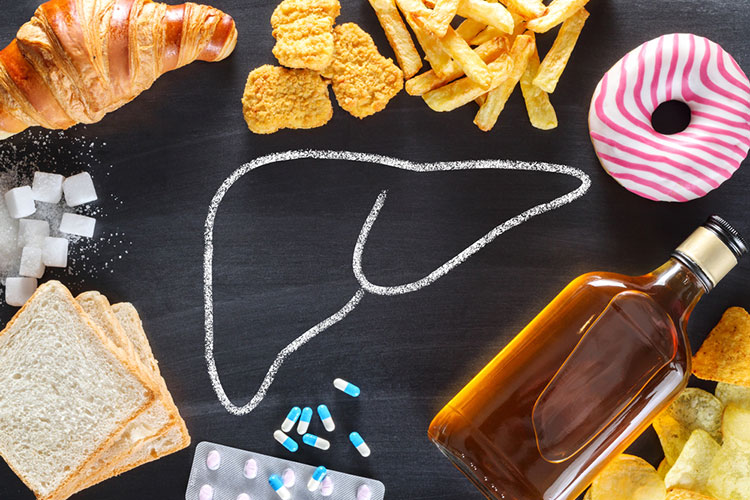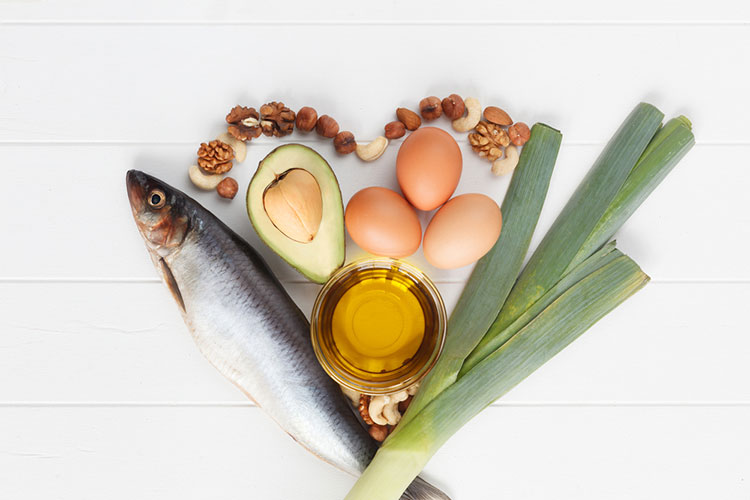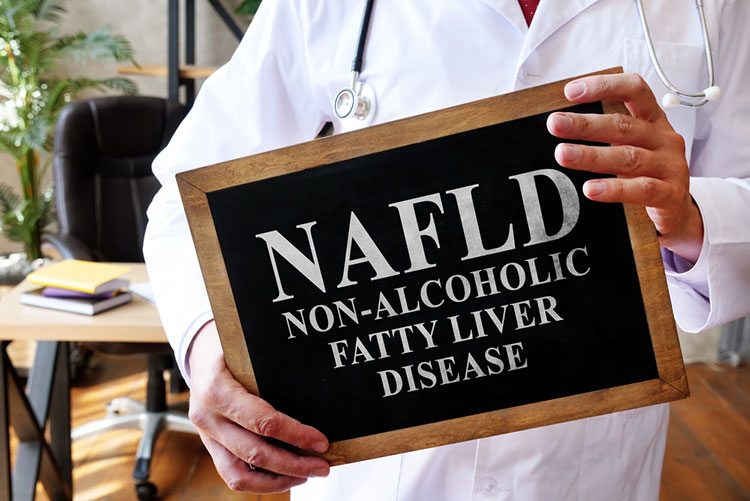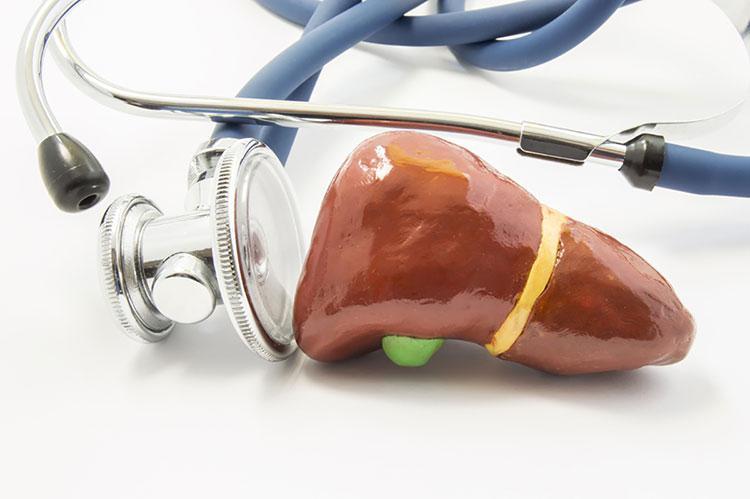The relationship between the ketogenic diet and fatty liver is the subject of this article and who can follow the keto diet despite having a fatty liver to lose weight and burn unhealthy liver fat.
With the increasing growth of obesity, a new type of liver damage has become very common. This damage is called non-alcoholic fatty liver disease (NAFLD), which is rooted in an unhealthy diet and causes fat to accumulate in the liver to a dangerous level.
Non-alcoholic fatty liver disease can be prevented and reversed (of course, provided that it has not reached the acute stages of this disease).
You can heal your liver with new diet and lifestyle changes. This requires a change in diet. For example, based on medical research conducted in the world, the ketogenic diet is useful and effective for fatty liver.
Therefore, in this article, we want to talk about the keto diet and the liver, the cause of this disease and ways to prevent it.

Can fatty liver disease be cured?
Lifestyle changes help the liver burn stored fats and eliminate fatty liver disease. Weight gain is one of the main causes of non-alcoholic fatty liver disease.
On the other hand, losing weight is one of the best things you can do to improve liver function. If you have obesity or type 2 diabetes, doing sports is very useful. However, weight loss alone may not be the key to solving this problem.
Researches have shown that the treatment of fatty liver is not only by losing weight, but how to lose weight is also important.
Diet and lifestyle factors, such as exercise and avoiding high-fructose corn syrup, play an important role in increasing the chances of treating fatty liver.
Also, a diet that regulates the gut microbiome is important for promoting metabolic health.
The relationship between ketogenic diet and fatty liver
Fatty liver disease means that a lot of fat is accumulated in your liver. It is normal for the liver to store some fat. The liver uses stored fats when your body is low on energy. But this disease manifests itself when fat occupies more than 5% of the liver’s weight. This condition is considered fatty liver.
There are two main types of fatty liver disease: alcoholic fatty liver disease, which is caused by excessive alcohol consumption. Non-alcoholic fatty liver disease that occurs due to improper lifestyle and diet.
If you don’t treat nonalcoholic fatty liver disease, it can develop into a more serious problem called nonalcoholic steatohepatitis. Non-alcoholic steatopatite causes liver inflammation and injury.
In this disease, your liver cells begin to die. This inflammation leads to cirrhosis or liver cancer. Lifestyle changes help the liver burn stored fats and eliminate fatty liver disease.
Weight gain is one of the main causes of non-alcoholic fatty liver disease. On the other hand, losing weight is one of the best things you can do to improve liver function.
If you have obesity or type 2 diabetes, doing sports is very useful. One of the most important diets in the world, which is recommended for the prevention and improvement of some diseases, is the ketogenic diet; A diet with high protein and very limited carbohydrates that changes the body’s metabolic base from sugar to fat.

4 main causes of fatty liver disease
Researchers still do not know the main cause of non-alcoholic fatty liver disease. Of course, they know that this disease is associated with a number of metabolic problems, including insulin resistance, diabetes, obesity, high blood fat, and high cholesterol.
Diet, exercise and genetic factors play an important role in the treatment of non-alcoholic fatty liver disease.
Intestinal bacteria may also affect your liver health:
Improper diet
Sugar seems to be one of the biggest causes of non-alcoholic fatty liver disease. Fructose (sugar found in fruits and corn syrup) puts a lot of pressure on the liver and is one of the biggest dietary causes of fat storage by the liver.
The combination of sugar and saturated fat is worse (however, saturated fat alone won’t cause problems for your liver).
Sugar causes the blood glucose to rise sharply, and your body secretes insulin to remove glucose from the blood and then stores the glucose as glycogen. Glycogen reserves are limited.
If you eat too much sugar and your glycogen stores are full, your liver will turn the excess glucose into fat. If you are a healthy person, excess fat goes into your fat cells to be stored. As a result, you gain weight and the fat goes where it belongs.
If you eat a lot of sugar and fat for a long time, you will develop insulin resistance. Insulin resistance means that the body does not understand insulin messages correctly.
As a result, stored fat is returned to the bloodstream. Then the body gets tense and sends that fat to the liver. Insulin resistance, resulting from a poor diet, is one of the main causes of non-alcoholic fatty liver disease.
Fatty liver causes a lot of damage to the body because it goes directly to the liver and turns into fat.
The liver has its own fructose transporters that are outside the cells in the gut, just like when the body is healthy it doesn’t absorb more fructose than you can handle.
If you regularly eat a lot of fructose, the cells make more transporters and thus allow more fructose to enter the liver. This is when you start to increase your chances of non-alcoholic fatty liver disease.
Inactivity and no exercise
This factor plays an important role in non-alcoholic fatty liver disease too. Exercising reduces liver fat and blood sugar and increases insulin sensitivity.
This means that exercising and increasing physical activity will reduce the risk of fatty liver. It also eliminates the possibility of fat accumulation in the future.
Exercising helps you lose body fat. Obesity is one of the indicators of increased risk of non-alcoholic fatty liver disease and there is a strong correlation between weight loss and liver health.

Genetics
Some genetic types also increase the probability of developing non-alcoholic fatty liver, and of course, some also increase the probability of non-alcoholic fatty liver becoming non-alcoholic steatopatite.
With a genetic test, you will find out if your genes have a tendency to increase the risk of fatty liver disease. Even if you are genetically predisposed, you can prevent this disease with proper diet and healthy lifestyle.
Gut microbiome
Gut bacteria also affects fatty liver disease. If the intestinal bacteria are out of balance, the liver may be attacked by harmful bacteria.
Harmful bacteria produce endotoxin to kill off the fighting bacteria, and there is a strong correlation between the amount of endotoxin in the gut and the risk of developing fatty liver disease.
Ketogenic Diet Benefits for Fatty Liver
In the ketogenic low carb diet, you consume very little carbohydrates and most calories come from protein and healthy fats.
As we mentioned earlier, insulin and carbohydrate play a major role in the development of fatty liver disease.
A high-carb, low-fat diet can make fatty liver worse. Especially if you eat a lot of sugar. But what about all that fat you eat on a ketogenic diet? Is keto diet bad for fatty liver?
Research shows that the ketogenic diet is good for fatty liver. Most of the fat that accumulates in your liver comes from carbohydrates or unhealthy fats; Therefore, the keto diet, which is based on healthy fats, works against this disease.
Other studies have also shown the importance of a low-carb diet for improving liver and metabolic health.
In a 6-month study with the ketogenic diet, researchers concluded that this type of diet caused significant weight loss and improved fatty liver disease in overweight people.
At the end of 6 months, the people participating in the research were able to lose about 14 kilos of their weight.
Researchers, in another research, studied healthy people who followed the ketogenic diet and saw a decrease in fat in the liver in just 10 days.
Researchers found that participants with nonalcoholic fatty liver disease experienced a 42 percent reduction in liver fat two weeks after following the ketogenic diet.
By restricting carbohydrates through a ketogenic diet, there is no more sugar and fructose to turn into fat in the liver. In addition, you will be protected against insulin resistance, which is also effective in preventing fatty liver.

Keto diet is recommended for which type of fatty liver?
Now the question is, to whom is the ketogenic diet recommended? Can all grades of fatty liver take this diet?
People with grade 1 and 2 fatty liver can follow the keto diet to burn unhealthy fat around their liver.
In this diet plan, you limit everything that has high carbohydrates and use protein and healthy fats such as fish and olive oil. However, if the fatty liver is in the acute stages of fat accumulation and the liver tissue is seriously damaged, using this diet is prohibited.
Therefore, do not start the keto diet without consulting your doctor until you first know the extent of your liver involvement.
Important recommendations of the keto diet for fatty liver
The keto diet and fatty liver have their own instructions, but in fatty liver disease, you should consume more foods (based on the keto diet):
Foods rich in monounsaturated fats
In addition to cardiovascular benefits, Monounsaturated fatty acids (MUFAs) appear to have protective effects on liver health.
A study in overweight adults with type 2 diabetes found that a high-MUFA diet led to a significant reduction in liver fat compared to a control diet, regardless of how much physical activity each group did.
The best sources of MUFA are olive oil, olives, avocados, macadamia nuts, almonds, and peanuts.
Green tea
Green tea is rich in catechins, including a powerful catechin called epigallocatechin gallate (EGCG).
In a 12-week controlled study, subjects with fatty liver who consumed tea containing at least 1 gram of catechin per day had greater reductions in liver fat, liver enzymes, and other markers compared to groups who consumed low-catechin green tea or green tea.

Fatty fish
Fatty fish rich in omega-3 polyunsaturated fatty acids (PUFAs) that have strong anti-inflammatory properties include salmon, sardines, mackerel, herring, and anchovies.
Foods Rich in Polyphenols
Polyphenols belong to a group of compounds known as phytochemicals, which are antioxidants found in plant pigments. Catechins in green tea are one type of polyphenol, and researchers have identified at least 4,000 others.
Early research suggests that foods high in polyphenols may be beneficial for people with fatty liver. Keto foods rich in polyphenols include berries, green vegetables, tomatoes, coffee, and olives.
Bottom line
In this article, we learned about the important point that this diet is suitable and effective only for grade 1 and grade 2 fatty liver, but if the liver is too much involved in fat, the ketogenic diet plan is not suitable for fatty liver at all.
For this reason, first determine the grade of fatty liver and if your liver conditions are suitable, follow the keto diet under the supervision of a doctor.

Leave a Reply